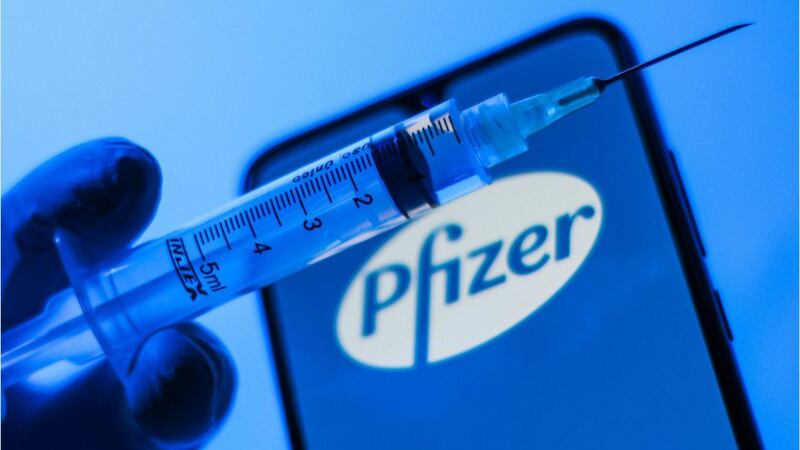Pharmaceutical company Pfizer announced Monday that its COVID-19 vaccination has been shown to be 90% effective against the novel coronavirus, and that it will petition the U.S. Food and Drug Administration for an Emergency Use Authorization to begin using the vaccine.
Along with German pharmaceutical company BioNTech, Pfizer began trials using the vaccine last spring and reported Monday that the trials showed the vaccine was highly effective against the virus.
Pfizer plans to ask the FDA for emergency authorization of the two-dose vaccine by the end of this month. First, it must follow half of the patients in their study for any safety issues for at least two months following their second dose. According to Pfizer, it expects to cross that threshold by the third week of November.
According to the company, it will have enough doses manufactured to immunize 15 million to 20 million people by the end of the year.
The vaccine is in a new class of vaccinations that use a genetic code to send a message to cells to tell them to produce an antibody to fight a virus.
Here’s what we know about the Pfizer vaccine.
How does this type of vaccine work?
The vaccine, called BNT162, is a messenger RNA (mRNA) vaccine. Messenger RNA exists in the body and sends messages to cells to repair damage or create proteins. The vaccine uses mRNA to set the fight against the virus into motion.
Simply put, an mRNA vaccine instructs cells to make a virus' protein so the body can make antibodies to kill the virus.
If your immune system is left on its own to fight a virus, it has to identify the virus, absorb it and build antibodies to fight it. With an mRNA vaccine, cells are given the virus information via a genetic code without actually having to be infected by the virus, and are instructed to create the virus protein. Once this protein is created, the body is triggered to create antibodies to fight the virus.
In the case of the novel coronavirus, the body makes the coronavirus' spike protein — those little knobs you’ve probably seen on the illustration of the COVID-19 virus.
How effective is it?
According to Pfizer, testing has shown that those who received two injections of the vaccine three weeks apart experienced more than 90% fewer cases of symptomatic COVID-19 than those who had received a placebo.
“I’ve been in vaccine development for 35 years,” William Gruber, Pfizer’s senior vice president of vaccine clinical research and development, told STAT. “I’ve seen some really good things. This is extraordinary.” He later added: “This really bodes well for us being able to get a handle on the epidemic and get us out of this situation.”
According to Health and Human Services Sec. Alex Azar, Pfizer is expected to be able to produce some 20 million doses a month beginning this month.
When would vaccinations be available?
Azar forecasted that at-risk nursing home residents, health care workers, older Americans and first responders could be vaccinated by the end of January, there would be “enough for all Americans by the end of March to early April to have general vaccination programs.”
The United States topped 10 million coronavirus cases on Monday.
Cox Media Group








